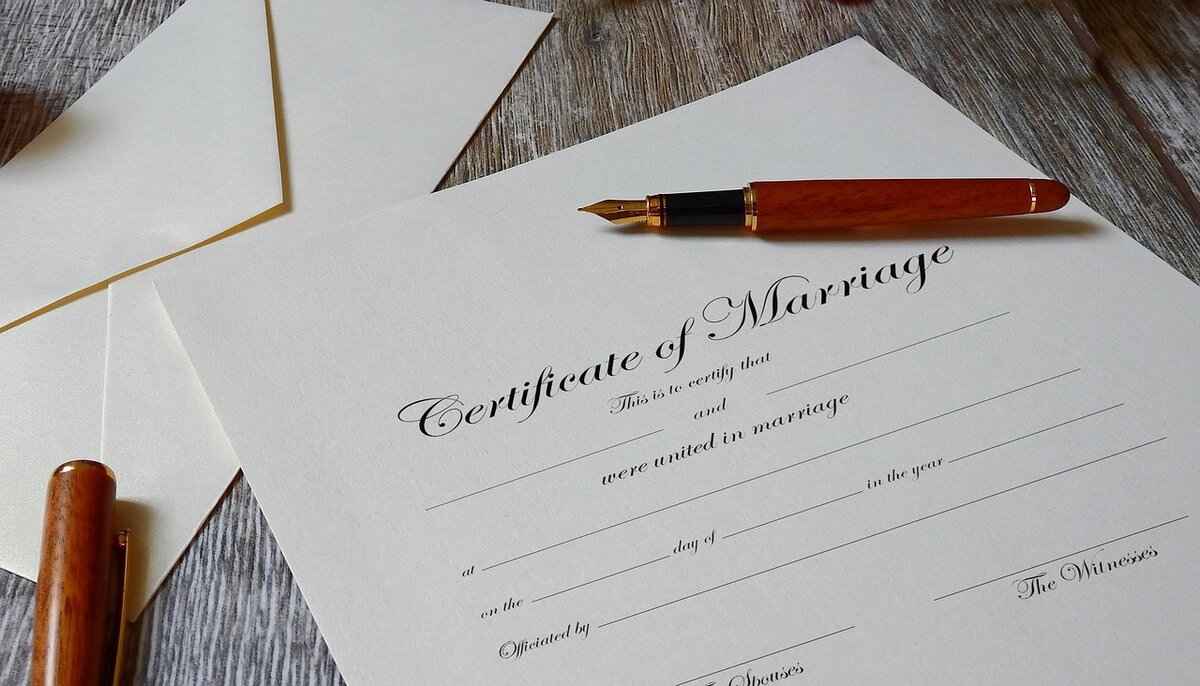This article delves into the essential role of witnesses in various legal transactions, examining the types of transactions that typically require witnesses, their specific functions, and the potential consequences of proceeding without one.
Understanding Legal Transactions
Legal transactions are actions or agreements that create binding obligations under the law. These can include contracts, property transfers, and estate planning documents. Recognizing when a witness is necessary is vital to ensure that these transactions are valid and enforceable.
The Role of a Witness in Legal Transactions
A witness serves as an impartial observer who can attest to the authenticity of a transaction. Their presence adds a layer of credibility and helps prevent disputes regarding the validity of the agreement. In many cases, a witness’s signature is required to confirm that the parties involved acted voluntarily and with full understanding of the terms.
- Types of Legal Transactions Requiring Witnesses
Several legal transactions mandate the presence of witnesses to ensure their legitimacy. Common examples include:
- Wills and Testaments: Most states require that a will be witnessed to ensure that the testator’s wishes are honored and that the document is not easily contested.
- Real Estate Transactions: The transfer of property often necessitates witnesses to validate deeds and other related documents, safeguarding against future disputes.
- Contracts: Certain contracts, particularly those involving significant obligations or long-term commitments, may also require witnessing to enhance their enforceability.
Legal Implications of Not Having a Witness
Failing to have a witness present during a legal transaction can lead to serious implications. Without a witness, the validity of the transaction may be questioned, leading to disputes and potential legal challenges. This can result in delays, costly litigation, and, in some cases, the complete invalidation of the transaction.
Exceptions to the Witness Requirement
While many legal transactions require witnesses, there are notable exceptions:
- Verbal Agreements: These can be legally binding without witnesses, although proving their existence can be challenging in court.
- Electronic Signatures: With the rise of digital transactions, electronic signatures have gained legal acceptance. However, the need for witnesses varies based on jurisdiction.
How to Choose an Appropriate Witness
Selecting the right witness is crucial for ensuring the validity of a legal transaction. An ideal witness should be:
- Impartial: They should not have a vested interest in the transaction.
- Legally Competent: A witness must be of sound mind and of legal age.
Common Mistakes When Choosing a Witness
Choosing the wrong witness can jeopardize the transaction. Common pitfalls include:
- Choosing someone who stands to benefit from the transaction.
- Selecting a witness who is not legally competent or available to testify if needed.
State-Specific Witness Requirements
Witness requirements can differ widely across states. Some jurisdictions have unique laws regarding the number of witnesses needed or their qualifications. It is essential to consult local statutes to ensure compliance.
Variations Across States:
For instance, while some states require two witnesses for wills, others may allow a single witness. Understanding these variations is crucial for ensuring that legal documents are properly executed.
Resources for State-Specific Information:
To navigate the complexities of witness requirements, individuals can refer to state bar associations, legal aid organizations, or consult with a qualified attorney for tailored advice.

Understanding Legal Transactions
is essential for anyone involved in agreements that carry legal weight. These transactions can range from simple contracts to complex arrangements, and they often dictate the rights and responsibilities of the parties involved. Grasping the nuances of these legal dealings is vital, especially when it comes to determining the necessity of a witness.
Legal transactions can be broadly categorized into several types, including but not limited to contracts, property transfers, and estate planning documents. Each category has its own set of rules and implications, making it crucial for individuals to understand what is required for their specific situation.
One of the primary reasons for having a witness during a legal transaction is to provide authenticity and credibility. A witness can confirm that the parties involved were competent and willing to enter into the agreement, which can be critical in the event of disputes. In many legal systems, the presence of a witness adds a layer of protection against fraud, ensuring that all parties are held accountable for their actions.
Moreover, certain legal documents explicitly require a witness to be valid. For instance, wills typically necessitate witnesses to validate the testator’s intentions, while real estate transactions often require witnesses to ensure the legitimacy of property transfers. The absence of a witness in these scenarios can lead to significant legal challenges, potentially rendering the documents unenforceable.
However, not all legal transactions mandate a witness. For example, verbal agreements can be legally binding, although they present challenges in terms of proving their existence. Additionally, with the advent of technology, electronic signatures have gained acceptance, often eliminating the need for a traditional witness. Understanding these exceptions is equally important for anyone engaging in legal transactions.
When selecting a witness, it is crucial to choose someone who is impartial and legally competent. A good witness should not have any vested interest in the transaction and should be able to confirm the events as they occurred. Common mistakes include selecting family members or individuals who may be biased, which can jeopardize the integrity of the transaction.
Furthermore, witness requirements can vary significantly by state, making it essential to be aware of local regulations. Some states have specific laws regarding who can serve as a witness and the number of witnesses required. It is advisable to consult legal resources or professionals to obtain accurate information tailored to your jurisdiction.
In summary, understanding legal transactions is vital for ensuring that agreements are enforceable and valid. The role of a witness cannot be overstated, as their presence can safeguard against potential disputes and validate the intentions of the parties involved. By being informed about the types of transactions that require witnesses, the implications of not having one, and the variations in state laws, individuals can navigate the complexities of legal agreements more effectively.

The Role of a Witness in Legal Transactions
The role of a witness in legal transactions is pivotal, serving as a crucial element in ensuring the authenticity and legitimacy of various agreements and documents. In legal contexts, a witness is an individual who observes the signing of a document and attests to the identity of the signers, thereby providing a layer of protection against potential disputes. This article delves deeper into the significance of witnesses, the weight their presence carries, and the implications of their absence in legal transactions.
Firstly, it is important to understand that legal transactions can range from contracts and wills to property deeds and power of attorney documents. Each of these transactions carries legal weight and often necessitates the presence of a witness to validate the process. The witness essentially acts as a safeguard, ensuring that the parties involved are entering into the agreement voluntarily and with full understanding.
One of the primary reasons for requiring a witness is to prevent fraud. A witness can provide testimony in the event of a dispute, confirming the circumstances under which the document was signed. This is especially crucial in cases where the validity of a document is challenged. For instance, if a will is contested, the witness can provide evidence that the testator was of sound mind and not under duress when signing the document.
Moreover, the presence of a witness can also enhance the credibility of the transaction. In legal settings, the more witnesses there are, the stronger the case becomes. This is particularly relevant in high-stakes transactions, where the potential for disputes is greater. Having a witness not only serves to validate the transaction but also instills confidence in the parties involved that the agreement will be upheld.
However, it is essential to note that not all legal transactions require witnesses. For example, some verbal agreements can be legally binding without the need for a witness, although proving their existence can be challenging. Similarly, with the rise of digital transactions, electronic signatures have gained acceptance, and many jurisdictions now recognize them as valid without the need for a witness.
When selecting a witness, certain criteria must be considered to ensure that they are suitable for the task. A good witness should be impartial, meaning they have no vested interest in the transaction. Additionally, they should be legally competent, meaning they are of sound mind and of legal age. Common mistakes when choosing a witness include selecting someone who is a party to the transaction or who may have a conflict of interest, which can jeopardize the validity of the document.
Lastly, witness requirements can vary significantly by state. Some states have specific laws that outline the number of witnesses needed for different types of legal documents, while others may have more flexible regulations. It is crucial for individuals to familiarize themselves with the laws in their jurisdiction to ensure compliance and avoid potential complications.
In conclusion, the role of a witness in legal transactions cannot be overstated. Their presence not only validates the transaction but also serves as a protective measure against future disputes. Understanding the importance of witnesses, the types of transactions that require them, and the implications of their absence is essential for anyone engaging in legal agreements.
Types of Legal Transactions Requiring Witnesses
In the realm of legal transactions, the presence of a witness is often not just a formality but a crucial component that ensures the integrity and enforceability of various documents. Understanding which transactions necessitate a witness can help individuals navigate the complexities of legal documentation effectively.
Wills and Testaments
One of the most critical legal documents requiring witnesses is a will. A will is a legal declaration of a person’s wishes regarding the distribution of their estate after death. Most states mandate that a will must be signed in the presence of at least two witnesses, who are typically required to be of legal age and mentally competent. The role of these witnesses is to affirm that the testator (the person making the will) was of sound mind and not under duress when signing the document. Failure to comply with these witness requirements can lead to the will being contested or deemed invalid.
Property Deeds
In real estate transactions, property deeds also commonly require witnesses. A property deed is a legal document that conveys ownership of real estate from one party to another. The presence of witnesses helps to confirm that the transfer of ownership is legitimate and that both parties are entering into the agreement voluntarily. Different states have varying requirements regarding the number of witnesses needed for property deeds, and some may even require notarization in addition to witness signatures.
Contracts
Many types of contracts also necessitate witnesses, particularly those involving significant obligations or financial commitments. For example, contracts related to the sale of real estate, loans, or partnerships often require witness signatures to enhance their enforceability. The witnesses serve as neutral parties who can testify to the authenticity of the agreement if disputes arise. It is essential to note that while many contracts do not legally require witnesses, having them can provide an additional layer of protection.
Power of Attorney
A power of attorney (POA) document grants one person the authority to act on behalf of another in legal or financial matters. Many states require that a POA be signed in the presence of witnesses to ensure that the principal (the person granting authority) is making the decision freely and is fully aware of the implications. This requirement helps prevent potential abuse of power and ensures that the document can withstand scrutiny in the event of a dispute.
Healthcare Directives
Healthcare directives, also known as living wills, specify an individual’s preferences regarding medical treatment in situations where they may be unable to communicate their wishes. Witnesses are often required to ensure that the directive reflects the true intentions of the individual and that they were not coerced into making those decisions. This is particularly important in states where laws dictate specific witness requirements for healthcare directives to be valid.
Summary of Witness Requirements
| Transaction Type | Witness Requirement |
|---|---|
| Wills | Typically 2 witnesses |
| Property Deeds | Varies by state, generally requires at least 1 witness |
| Contracts | Not always required, but recommended for significant agreements |
| Power of Attorney | Usually requires 1 or 2 witnesses |
| Healthcare Directives | Varies, often requires 1 or 2 witnesses |
In conclusion, understanding the types of legal transactions that require witnesses is vital for ensuring the validity and enforceability of these documents. Each state may have its own specific requirements, so it is advisable to consult with a legal professional familiar with local laws to ensure compliance.
Wills and Testaments
are fundamental legal documents that outline an individual’s wishes regarding the distribution of their assets after death. One critical aspect of creating a valid will is the requirement for witnesses. This segment elaborates on the requirements for witnessing a will in various states, highlighting the importance of adhering to these guidelines to ensure that the testator’s intentions are honored.
In the United States, the laws governing wills and the witnessing process can differ significantly from state to state. Generally, a will must be signed by the testator in the presence of at least two witnesses. These witnesses must be competent adults, typically over the age of 18, and should not be beneficiaries of the will to avoid potential conflicts of interest.
| State | Witness Requirement | Additional Notes |
|---|---|---|
| California | 2 witnesses | Must be present at the same time as the testator. |
| New York | 2 witnesses | Witnesses must sign the will in the presence of the testator. |
| Texas | 2 witnesses | Must be present during the signing of the will. |
| Florida | 2 witnesses | Cannot be beneficiaries of the will. |
Witnesses play a crucial role in validating the authenticity of a will. Their presence helps to confirm that the testator was of sound mind and not under duress when signing the document. If a will is contested, the testimony of witnesses can provide critical evidence regarding the circumstances under which the will was executed.
It is essential to understand that some states allow for holographic wills, which are handwritten and do not require witnesses. However, these types of wills can be more challenging to prove in court, as they may lack the formalities that witnesses provide. Therefore, while it may be tempting to create a will without witnesses, doing so could lead to complications and disputes among heirs.
Additionally, certain states have adopted the Uniform Probate Code (UPC), which standardizes some witnessing requirements. For instance, under the UPC, a will can be valid if it is signed by the testator and witnessed by at least two individuals, regardless of whether they are beneficiaries. This flexibility can be beneficial in situations where finding impartial witnesses is difficult.
In conclusion, while the requirements for witnessing a will can vary by state, the necessity of having witnesses is a common thread that underscores the importance of ensuring that a testator’s wishes are respected and upheld. It is advisable for individuals creating a will to consult with a legal professional to navigate the specific requirements in their state and ensure that all necessary steps are taken to create a valid and enforceable document.
Real Estate Transactions
are significant events in the lives of individuals and businesses, involving the transfer of property ownership through various legal instruments such as deeds and mortgages. One critical aspect of these transactions is the requirement for witnesses, which serves to enhance the legitimacy and enforceability of the agreements made. This article delves into the witness requirements in real estate deals, exploring their importance, implications, and the specific regulations that govern them.
When it comes to legal transactions, a witness plays a vital role in verifying the authenticity of the parties involved and the agreement itself. In real estate, the presence of a witness can prevent future disputes regarding the validity of the transaction. This is particularly significant given the high stakes involved in property ownership.
Witnesses serve multiple purposes in real estate transactions:
- Validation: They confirm that the signatories are who they claim to be and that they are signing voluntarily.
- Legal Protection: Their signatures can help protect against claims of fraud or coercion.
- Dispute Resolution: In case of a dispute, a witness can provide testimony regarding the circumstances of the signing.
Each state in the United States has its own laws regarding the necessity and qualifications of witnesses in real estate transactions. Generally, the following guidelines apply:
- Most states require at least one witness for the signing of a deed.
- The witness must be an adult and of sound mind, typically not a party to the transaction.
- Some states may require two witnesses, particularly for more complex transactions.
Failing to have a witness present during a real estate transaction can lead to serious legal repercussions. Without a witness, the validity of the deed may be challenged, potentially resulting in:
- Inability to enforce the terms of the contract.
- Legal disputes that could delay or prevent the transfer of property.
- Increased costs associated with litigation to resolve disputes.
While many transactions require witnesses, certain exceptions exist. For example, some states allow for electronic signatures in real estate transactions, which may not necessitate a witness. It’s essential to consult local laws to determine the specific requirements applicable in each situation.
Selecting an appropriate witness is crucial for ensuring the validity of a real estate transaction. Here are some key considerations:
- Impartiality: A witness should not have a vested interest in the transaction.
- Legal Competence: The witness must be of legal age and mentally competent.
- Availability: Ensure that the witness is available to testify if needed in the future.
Witness requirements can vary significantly by state, making it important for parties involved in real estate transactions to be aware of local laws. For instance, while some states may require two witnesses for certain documents, others may permit a single witness. Resources such as state bar associations or real estate legal experts can provide valuable guidance on these variations.
In summary, understanding the witness requirements in real estate transactions is essential for ensuring the legitimacy and enforceability of property transfers. By adhering to the legal standards and selecting appropriate witnesses, parties can protect their interests and minimize the risk of future disputes.
Legal Implications of Not Having a Witness
In the realm of legal transactions, the presence of a witness can significantly influence the validity and enforceability of agreements. The absence of a witness during critical transactions can lead to severe legal implications, including disputes and potential invalidation. This section delves into the consequences of not having a witness, emphasizing the importance of their role in various legal contexts.
Understanding the Importance of a Witness
A witness serves as an impartial observer who can attest to the authenticity of a legal transaction. Their role is not merely ceremonial; it provides a safeguard against fraud and misrepresentation. Without a witness, the legitimacy of the transaction may be called into question, leading to legal challenges and disputes among parties involved.
Potential Consequences of Not Having a Witness
- Disputes Over Authenticity: In the absence of a witness, the parties involved may find themselves in disputes regarding the terms and conditions of the agreement. This can lead to lengthy and costly litigation.
- Invalidation of Legal Documents: Certain legal documents, such as wills and property deeds, may be rendered invalid if not properly witnessed. This means that the intentions of the parties may not be honored, causing significant distress and financial loss.
- Increased Burden of Proof: Without a witness, the burden of proving the validity of the transaction falls heavily on the parties involved. This can complicate matters, especially in cases where the agreement is contested.
- Legal Fees and Costs: Engaging in disputes due to the lack of a witness can lead to increased legal fees and costs. The financial implications can be substantial, particularly if the matter escalates to court.
Specific Scenarios Impacted by the Absence of a Witness
Different types of legal transactions can experience varying degrees of impact from the absence of a witness. For example:
- Wills and Testaments: Most jurisdictions require witnesses for wills to ensure that the testator’s intentions are fulfilled. Without witnesses, heirs may contest the will, leading to protracted legal battles.
- Real Estate Transactions: In real estate, the lack of a witness can jeopardize the transfer of property. Deeds that are not properly witnessed may be challenged in court, potentially resulting in loss of ownership.
- Contracts: While some contracts may not legally require witnesses, having one can provide additional security. The absence of a witness can lead to disputes over the terms, especially if one party claims the contract was not signed or agreed upon.
Mitigating Risks Associated with the Absence of a Witness
To mitigate the risks associated with not having a witness, individuals should consider the following strategies:
- Always Include a Witness: Whenever possible, include a witness in legal transactions to provide an extra layer of protection.
- Understand State Requirements: Different states have varying laws regarding witness requirements. Familiarizing oneself with these laws can help avoid complications.
- Use Electronic Signatures Wisely: In the digital age, electronic signatures are becoming more common. However, understanding their legal standing and whether a witness is needed is crucial.
In summary, the implications of not having a witness during legal transactions can be profound and far-reaching. It is essential for individuals to recognize the importance of a witness in safeguarding their rights and ensuring the validity of their agreements.

Exceptions to the Witness Requirement
When it comes to legal transactions, the presence of a witness is often viewed as a critical component. However, there are notable exceptions where a witness may not be necessary. Understanding these exceptions can save time and resources, and ensure that parties involved in a transaction are well-informed about their legal standing.
In this section, we will explore various scenarios where witnesses are not required, including verbal agreements, electronic signatures, and certain statutory exceptions.
One of the primary exceptions to the witness requirement is the existence of verbal agreements. These agreements can be legally binding, even without a witness, provided that they meet certain conditions. The essential elements of a contract—offer, acceptance, and consideration—must still be present. However, the challenge lies in proving the existence and terms of the verbal agreement in case of a dispute.
- Verbal agreements are often enforceable in small transactions.
- Proving a verbal contract typically relies on the credibility of the parties involved.
- Documentation or witness testimonies can strengthen claims regarding verbal agreements.
With the emergence of digital transactions, electronic signatures have become widely accepted in many jurisdictions. Under laws such as the Electronic Signatures in Global and National Commerce (ESIGN) Act, electronic signatures hold the same legal weight as traditional handwritten signatures. This means that many transactions can be completed without the need for a witness.
- Electronic signatures must meet specific criteria to be valid.
- Both parties must intend to sign and agree to the electronic format.
- Records of the transaction must be maintained for legal purposes.
Various laws and regulations may also provide exceptions to the witness requirement. For instance, some states allow for the execution of certain documents, such as powers of attorney, without a witness under specific circumstances. It is essential to consult state laws to understand these exceptions fully.
- State-specific laws can dictate when a witness is necessary.
- Some documents may require notarization instead of witnessing.
- Understanding local regulations can help avoid unnecessary complications.
In some cases, specific legal contexts may eliminate the need for a witness. For example, certain commercial contracts and agreements made under the Uniform Commercial Code (UCC) may not require witnesses if they are documented properly. Additionally, agreements made between family members may also be exempt from witness requirements.
It is crucial for individuals and businesses to be aware of these exceptions to ensure that they are not inadvertently complicating their legal transactions. By understanding when a witness is not necessary, parties can streamline processes and reduce potential legal hassles.
In conclusion, while witnesses play a vital role in many legal transactions, exceptions do exist. Verbal agreements, electronic signatures, and various statutory exceptions can provide flexibility in how agreements are executed. By being informed about these alternatives, individuals can navigate legal transactions more effectively.
Verbal Agreements
are an essential aspect of contract law that often goes overlooked. Many individuals assume that a contract must be in writing to be legally binding, but this is not always the case. In fact, verbal agreements can hold significant legal weight, even in the absence of witnesses. However, the enforceability of these agreements can vary based on the context and the ability to prove their existence.
In the realm of contract law, a verbal agreement is an agreement made through spoken communication rather than written documentation. While these agreements can be legally binding, they often face challenges when it comes to enforcement. One primary issue is the burden of proof; without tangible evidence, such as a written contract or witness testimony, it can be difficult to demonstrate the terms of the agreement and the parties’ intentions.
The enforceability of verbal agreements typically hinges on several factors:
- Intent to Create Legal Relations: Both parties must intend for the agreement to be legally binding.
- Specificity of Terms: The terms of the agreement must be clear enough to be enforceable.
- Capacity: Both parties must have the legal capacity to enter into a contract.
- Legality: The subject matter of the agreement must be lawful.
Despite these conditions, proving a verbal agreement can be complex. Courts often rely on circumstantial evidence or the credibility of the parties involved. For example, if one party can provide credible testimony or other forms of evidence, such as emails or text messages referencing the agreement, this may strengthen their case.
Furthermore, certain types of agreements are governed by the Statute of Frauds, which requires specific contracts to be in writing. These typically include:
- Contracts for the sale of real estate
- Contracts that cannot be performed within one year
- Contracts for the sale of goods over a certain value
In these instances, a verbal agreement would not be enforceable unless it meets specific exceptions, such as partial performance or reliance on the agreement to one’s detriment.
To navigate the complexities of verbal agreements, it is advisable to document any agreements made verbally as soon as possible. This can include sending a follow-up email summarizing the discussion or having the parties sign a written confirmation of the agreement. Doing so can significantly reduce the risk of disputes and provide a clearer path to enforcement.
In conclusion, while can indeed be legally binding, relying on them without documentation or witnesses can lead to complications. Understanding the nuances of contract law is crucial for anyone engaged in verbal agreements, ensuring that their intentions are honored and enforceable in a court of law.
Electronic Signatures
In today’s digital landscape, the use of has become increasingly prevalent, especially with the surge in online transactions. As businesses and individuals embrace technology, understanding the legal standing of electronic signatures is essential. This section delves into the validity of electronic signatures and the requirements surrounding witnesses in electronic transactions.
An electronic signature is defined as a digital representation of a person’s intent to agree to the contents of a document. Unlike traditional signatures, electronic signatures can be created using various methods, such as typing a name, clicking an “I agree” button, or using biometric data. The legal framework, particularly the Electronic Signatures in Global and National Commerce (ESIGN) Act and the Uniform Electronic Transactions Act (UETA), establishes that electronic signatures hold the same weight as handwritten signatures in most cases.
The question of whether witnesses are required for electronic signatures largely depends on the nature of the transaction and the jurisdiction in which it takes place. In many cases, witnesses are not required for electronic signatures. However, certain legal documents such as wills, trusts, and real estate transactions may still necessitate a witness to validate the signature.
To ensure that an electronic signature is legally binding, it must meet specific criteria. These include:
- Intent: The signer must demonstrate a clear intent to sign the document.
- Consent: All parties involved must agree to the use of electronic signatures.
- Authentication: There must be a method to verify the identity of the signer.
- Integrity: The signed document must remain unaltered post-signature.
While electronic signatures simplify many processes, the need for a witness can arise based on the document type. For instance, in some states, wills executed electronically may still require witnesses to ensure the testator’s intentions are honored. Additionally, certain real estate transactions may also mandate witness signatures to validate the transfer of property rights.
It’s crucial to note that witness requirements for electronic signatures can vary significantly across different states. Some states have embraced electronic signatures fully, while others maintain traditional requirements, including witness signatures. Therefore, it is vital for individuals and businesses to consult state-specific laws to ensure compliance.
To effectively utilize electronic signatures while ensuring their validity, consider the following best practices:
- Choose a reputable platform: Use established e-signature platforms that comply with legal standards.
- Document the process: Keep records of the signing process, including timestamps and IP addresses.
- Educate all parties: Ensure that all signers understand the implications of using electronic signatures.
In conclusion, while electronic signatures offer a modern solution for executing legal documents, understanding the nuances related to witness requirements is essential. As technology continues to evolve, staying informed about legal standards will help ensure that electronic transactions are conducted smoothly and legally.

How to Choose an Appropriate Witness
Selecting the right witness is critical in ensuring the validity and authenticity of a legal transaction. A witness serves not only as a third-party observer but also as a safeguard against potential disputes and challenges in the future. This section outlines essential guidelines for choosing an appropriate witness, ensuring that the transaction remains legally binding and recognized.
- Impartiality: A good witness should be unbiased and have no personal stake in the transaction. This ensures that their testimony remains credible and trustworthy.
- Legal Competence: The witness must be of legal age and mentally competent. In most jurisdictions, this means they should be at least 18 years old and capable of understanding the implications of the transaction.
- Availability: Choose a witness who is available to testify if needed. Their presence during the transaction is crucial, and they should be willing to affirm their role if any disputes arise.
- Understanding of the Transaction: A witness should have a basic understanding of the transaction to provide relevant testimony. They don’t need to know all the legal intricacies, but they should grasp the general purpose of the agreement.
When selecting a witness, it is also important to avoid common pitfalls that can undermine the validity of the transaction:
- Family Members and Close Friends: While they may seem like trustworthy choices, selecting someone with a personal connection can lead to questions about their impartiality.
- Individuals with Conflicts of Interest: Avoid witnesses who have a vested interest in the transaction, as this can compromise their objectivity.
- Unreliable Individuals: Steer clear of witnesses who may not be dependable or who have a history of dishonesty.
In some cases, it may be beneficial to have multiple witnesses present. This can provide additional layers of verification and support the legitimacy of the transaction. However, the number of witnesses required can vary by jurisdiction and the specific nature of the transaction.
Furthermore, it is essential to consider state-specific witness requirements. Different states have varying laws regarding who can serve as a witness and the number of witnesses needed for different types of transactions. Always consult local regulations or seek legal advice to ensure compliance.
In summary, the process of selecting an appropriate witness is not merely a formality; it is a fundamental aspect of ensuring the legal integrity of transactions. By considering factors such as impartiality, legal competence, and potential conflicts of interest, individuals can make informed decisions that enhance the validity of their legal agreements.
Qualifications of a Good Witness
When it comes to legal transactions, the role of a witness is often underestimated. A witness is not merely a bystander; they play a crucial role in ensuring the integrity and legality of the transaction. This section delves into the , which are essential for maintaining the validity of legal documents and agreements.
To begin with, a good witness must be impartial. This means they should have no personal interest in the transaction at hand. An impartial witness can provide an unbiased account of the event, which is vital in case of disputes. For instance, if a witness has a financial stake in the outcome of a transaction, their testimony may be challenged in court. Thus, the absence of any conflict of interest is a fundamental qualification for a witness.
In addition to impartiality, a witness must be legally competent. This generally means that the witness must be of legal age, typically 18 years or older, and possess the mental capacity to understand the significance of their role. A witness who does not meet these criteria may render the transaction invalid. Furthermore, specific legal statutes in various jurisdictions may outline additional requirements, such as the witness being a resident of the state where the transaction occurs.
Moreover, a good witness should have a clear understanding of the transaction’s context. They should be able to comprehend the nature of the document they are witnessing, whether it’s a will, contract, or property deed. This understanding helps ensure that the witness can accurately attest to the circumstances surrounding the signing of the document.
Another important qualification is the witness’s ability to provide credible testimony. This involves having a good reputation and standing in the community. A witness known for honesty and integrity is more likely to be trusted by courts, which enhances the credibility of the legal transaction they are witnessing.
Additionally, it is advisable for a witness to be available for future testimony if necessary. In some cases, the validity of a document may be questioned after the fact, and having a reliable witness who can confirm the details can be invaluable. This means that the chosen witness should be someone who can be located easily and is willing to support the transaction if disputes arise.
Lastly, it’s essential to consider the number of witnesses required for certain transactions. Some documents may require more than one witness to be valid. Understanding the specific requirements for the type of transaction being conducted is crucial in selecting the right witnesses.
In summary, the qualifications of a good witness are multifaceted. They must be impartial, legally competent, knowledgeable about the transaction, credible, available for testimony, and aware of the specific requirements related to the number of witnesses needed. By carefully selecting witnesses who meet these criteria, parties can help ensure that their legal transactions are valid and enforceable.
Common Mistakes When Choosing a Witness
Choosing the right witness for a legal transaction is critical, as a poor choice can jeopardize the entire process. It’s essential to understand the common mistakes made when selecting a witness and how to avoid them to ensure the validity of the transaction.
- Choosing Someone with a Conflict of Interest: One of the most significant mistakes is selecting a witness who has a personal stake in the transaction. A witness should be impartial and free from any conflicts that could call their credibility into question. For instance, having a family member or business partner as a witness can lead to allegations of bias, potentially invalidating the transaction.
- Witnesses Lacking Legal Competence: Not all individuals can serve as witnesses. It’s crucial to choose someone who meets the legal requirements of your state. This typically includes being of legal age (usually 18 or older) and mentally competent. Failing to adhere to these requirements can render the witness’s testimony inadmissible.
- Ignoring State-Specific Laws: Witness requirements can vary significantly from state to state. A common mistake is not researching the specific laws governing witness requirements in your jurisdiction. For example, some states may require witnesses to sign documents in the presence of the signers, while others may not. This oversight can lead to legal complications.
- Failure to Ensure Witness Availability: Before finalizing a witness, it’s essential to confirm their availability on the day of the transaction. A witness who cannot attend may cause delays or necessitate rescheduling, which can complicate the legal process.
- Not Discussing the Role of the Witness: Many individuals assume that witnesses understand their role and responsibilities. However, it is vital to communicate clearly what is expected of them. This includes explaining the importance of their presence and ensuring they are willing to sign the necessary documents.
- Overlooking the Importance of Documentation: Some people forget that witnesses should also document their presence. Failing to have the witness sign and date the document can lead to disputes about whether the transaction was properly executed. Always ensure that the witness understands the importance of signing the document.
To avoid these pitfalls, it is advisable to take a systematic approach when selecting a witness. Begin by identifying individuals who meet the legal criteria and can remain objective throughout the transaction. It may also be helpful to consult with a legal professional to ensure that all aspects of the witness selection process are in compliance with state laws.
In summary, the choice of a witness plays a crucial role in the success of legal transactions. By being aware of common mistakes and taking proactive steps to avoid them, individuals can significantly enhance the likelihood of a smooth and legally sound transaction.

State-Specific Witness Requirements
When engaging in legal transactions, understanding the witness requirements specific to each state is essential. These requirements can vary widely, impacting the validity of legal documents and agreements. This section delves into how different states govern the need for witnesses, highlighting key variations and common practices.
Variations Across States
Each state has its own laws regarding the necessity and role of witnesses in legal transactions. For instance, while some states mandate the presence of witnesses for wills, others may have more lenient requirements. In states like California and New York, a will typically requires at least two witnesses, who must be present at the same time when the testator signs the document. Conversely, states like Texas allow for a will to be valid without witnesses if it is handwritten by the testator.
In terms of real estate transactions, states such as Florida require witnesses for deeds, ensuring that the transfer of property is legitimate and recognized by law. In contrast, states like Illinois do not require witnesses for all types of property transactions, although having them can provide additional legal protection.
Resources for State-Specific Information
Finding accurate information about state-specific witness requirements can be challenging, yet it is crucial for ensuring compliance with local laws. Reliable resources include:
- Nolo – A comprehensive legal resource that provides state-specific information on various legal topics.
- American Bar Association – Offers guidance and resources for understanding legal requirements across different states.
- FindLaw – A legal information website that covers witness requirements and other legal processes by state.
Additionally, consulting with a local attorney can provide personalized insights and clarify any uncertainties regarding witness requirements in your jurisdiction.
Conclusion
Understanding the nuances of witness requirements across states is vital for anyone involved in legal transactions. By knowing the specific requirements in your state, you can ensure that your documents are valid and enforceable, ultimately protecting your legal rights.
Variations Across States
When it comes to legal transactions, the requirement for witnesses varies significantly across different states in the United States. Understanding these variations is crucial for ensuring compliance with local laws and avoiding potential legal disputes. This section delves into the unique witness requirements that exist in various jurisdictions, highlighting key differences and commonalities.
Witness Requirements in Different States
Each state has its own set of laws governing the necessity and qualifications of witnesses for legal documents. For instance, while some states may require two witnesses for a will, others might only mandate one. Furthermore, certain states allow for the use of notarized signatures as a substitute for witnesses, which can simplify the process in some instances.
| State | Witness Requirement for Wills | Witness Requirement for Contracts |
|---|---|---|
| California | 2 witnesses | Generally none, unless specified |
| New York | 2 witnesses | Generally none, unless specified |
| Texas | 1 witness | Generally none, unless specified |
| Florida | 2 witnesses | Generally none, unless specified |
Notable Differences in Witness Requirements
- Witness Age: Some states require witnesses to be at least 18 years old, while others do not specify an age requirement.
- Witness Relationship: In certain jurisdictions, witnesses cannot be beneficiaries of the will or contract, ensuring impartiality.
- Electronic Transactions: With the rise of digital documentation, states are increasingly recognizing electronic signatures, which may not require traditional witnesses.
In addition to these differences, some states have adopted the Uniform Probate Code, which aims to standardize witness requirements for wills. This code allows for a more streamlined process, especially in states that have embraced it, making it easier for individuals to navigate the legal landscape.
Practical Implications of State Variations
Understanding the specific witness requirements in your state is essential for the validity of legal documents. Failing to meet these requirements can result in disputes, invalidation of documents, and potential legal challenges. Therefore, it is advisable to consult with a legal professional familiar with local laws to ensure compliance.
As you navigate the complexities of legal transactions, staying informed about the variations in witness requirements across states can save you time, money, and legal headaches. It is also beneficial to regularly check for updates to state laws, as these can change and impact your legal standing.
Resources for State-Specific Information
Navigating the complexities of witness requirements can be daunting, especially given the significant variations across different states. Understanding the nuances of these legal stipulations is crucial for anyone involved in legal transactions. Fortunately, there are several reliable resources available to help individuals and legal professionals obtain accurate and up-to-date information regarding state-specific witness requirements.
- State Bar Associations: Each state has its own bar association, which serves as a valuable resource for legal information. These organizations often provide guidelines on witness requirements for various legal documents, including wills, contracts, and property deeds. Visiting the official website of your state’s bar association can yield detailed information tailored to your jurisdiction.
- Legal Aid Websites: Many states have legal aid organizations that offer free or low-cost legal assistance. These websites often include comprehensive resources about state laws, including witness requirements. They can also provide access to legal professionals who can answer specific questions related to your situation.
- Government Websites: Official state government websites frequently contain sections dedicated to legal resources. These sites may provide information on the legal requirements for witnesses, including any forms or documentation needed for specific transactions. Checking your state’s official site can help ensure you are referencing accurate and authoritative information.
- Legal Research Databases: Subscription-based legal research platforms, such as Westlaw or LexisNexis, offer extensive databases of legal statutes and case law. These platforms can be invaluable for legal professionals seeking in-depth information on state-specific witness requirements. They often include tools that allow users to filter information by state and legal topic.
- Local Law Libraries: Many counties and municipalities have law libraries that are open to the public. These libraries typically house a wealth of legal resources, including books, legal forms, and access to legal databases. Librarians can also assist in locating specific information regarding witness requirements.
- Consulting with an Attorney: For those who require personalized guidance, consulting with a licensed attorney in your state can provide clarity on witness requirements. Attorneys who specialize in the relevant area of law can offer insights based on their experience and knowledge of local regulations.
In addition to these resources, it is essential to stay updated on any changes to state laws regarding witness requirements. Legal standards can evolve, and being informed about these changes can help prevent potential issues in legal transactions. By utilizing these resources, individuals can ensure that they are equipped with the necessary knowledge to navigate the complexities of witness requirements in their respective states.
Frequently Asked Questions
- Do all legal transactions require a witness?
No, not all legal transactions require a witness. For example, verbal agreements can be legally binding without witnesses, though proving their existence can be tricky.
- What types of transactions typically need a witness?
Common transactions that usually require a witness include wills, property deeds, and certain contracts. These witnesses help validate the authenticity and intentions behind the agreements.
- What happens if a legal transaction is made without a witness?
If a legal transaction is conducted without a witness when one is required, it can lead to disputes and potential invalidation of the transaction. This can complicate matters significantly.
- How do I choose the right witness?
Choosing the right witness is crucial. A good witness should be impartial, legally competent, and not have a vested interest in the transaction. Avoid common mistakes like selecting a family member or someone who may benefit from the agreement.
- Are electronic signatures considered valid?
Yes, electronic signatures are generally accepted and can be valid without a witness in many jurisdictions. However, it’s essential to check specific state laws regarding their use.














